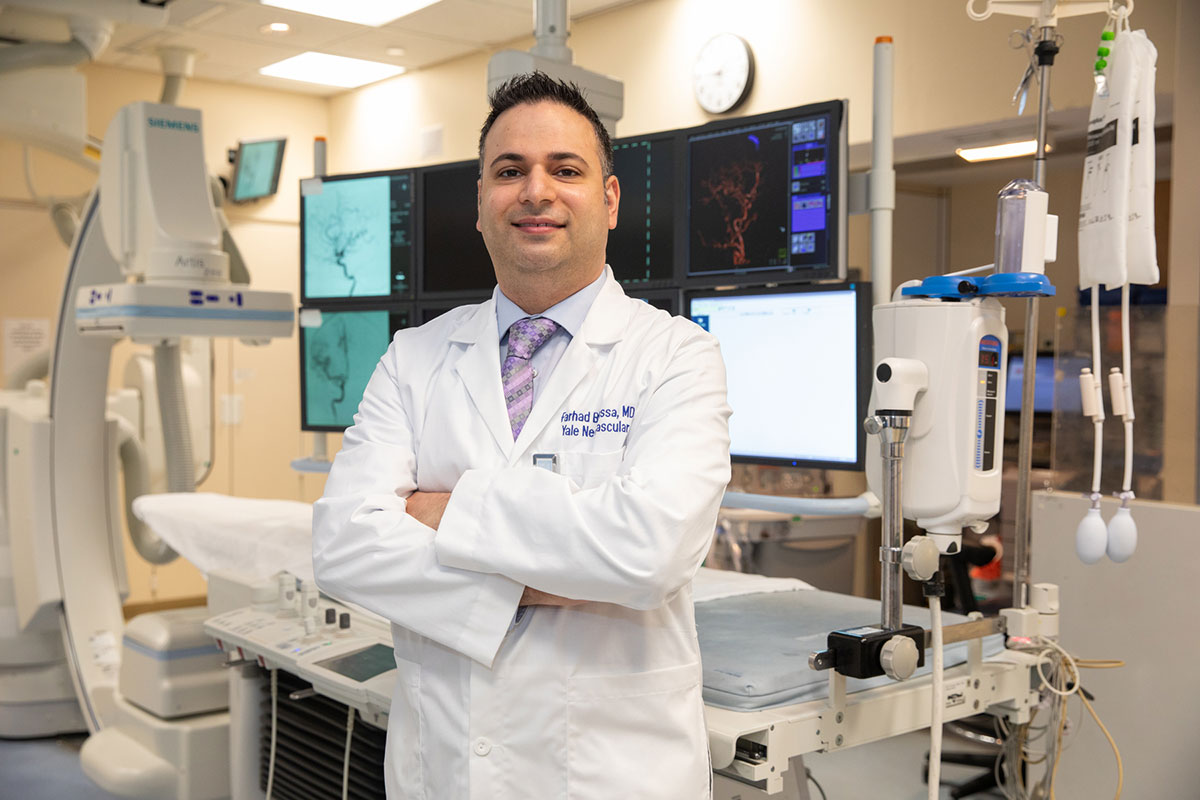
Popular Locations
- NEMG Internal Medicine - New Haven
- NEMG Internal Medicine - Orange
- NEMG Internal Medicine - Trumbull

Published October 15, 2021

With expert neurosurgeons available around the clock and the latest innovations in stroke care, Farhad Bahrassa, MD, of Bridgeport Hospital’s Stroke Center says, “It’s a game changer for people in the Bridgeport area.”
When it comes to stroke, every minute counts. Stroke experts at Bridgeport Hospital have a new procedure, called thrombectomy, in their medical arsenal that offers the brain the best possible chances of recovery.
This latest cutting-edge neurosurgical treatment is an emergency surgical procedure for ischemic stroke, the most common type of stroke. “Time is brain,” they say, stressing the importance and magnitude of seeking immediate medical help when showing signs of stroke.
An ischemic stroke occurs when a blood clot starves the brain of oxygen. “When 2 million brain cells die for every minute without blood flow, time is critical,” said cerebrovascular neurosurgeon Charles Matouk, MD, chief of the neurovascular and endovascular program at Yale New Haven Hospital who oversees the Stroke Center at Bridgeport Hospital. “Stroke care involves the timeliest procedures in medicine.”
During a thrombectomy, a neurosurgeon removes the blood clot to re-establish blood flow to the brain. The procedure can help when conducted up to 24 hours after the onset of a stroke. The neurosurgeon makes a small incision in the patient’s wrist or upper leg, exposing an artery. A catheter is inserted into the artery and navigated to the site of the blockage in the brain. The neurosurgeon then inserts a tiny retriever through the catheter to grab and remove the clot. The success rate for reopening a blocked artery with a thrombectomy is 85 - 90 percent. The hospital procedure typically takes under an hour.
“Having immediate access to this type of stroke treatment is a game-changer for people in the Bridgeport area,” said Farhad Bahrassa, MD, a neurosurgeon at Bridgeport Hospital who performs thrombectomies at the hospital’s Stroke Center. “It has a tangible impact on recovery and quality of life because they can be treated right here, close to home.”
Do you know the signs and symptoms of a stroke? Acting quickly could save a life.